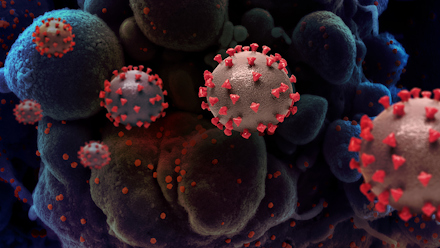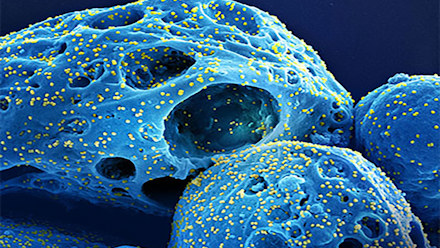Randi Shanken, 70, becomes emotional when she talks about her daughter’s upcoming wedding and a trip to Disneyland — a family tradition.
“We have waited a long time to be together without worry or anxiety,” said Shanken.
Shanken was diagnosed with leukemia approximately six years ago. She received regular blood draws and symptom surveillance during that time. Then, in September 2020, she showed signs of anemia and began treatment.
Shanken was trying to navigate cancer treatment at the same time the world was entering into the SARS-CoV-2 global pandemic.
“I went into strict lockdown. I was considered a high-risk patient, and I knew I was susceptible to a severe case of COVID-19 while undergoing cancer treatment because my immune system was not as strong,” said Shanken. “I am an avid tennis player, but I stopped playing. I stopped seeing my friends and family. My husband and I started hibernating together at home.”
Shanken said she was relieved and grateful when she became eligible for the COVID-19 vaccination and then the booster. “I felt like there was finally a bright light at the end of the tunnel.”
But unfortunately, blood work showed her body did not build antibodies against the virus.
“It was very disappointing and depressing. I still had no protection and needed to continue isolating from the world,” she said. “I wanted desperately to connect with people outside of my house. I wanted to see my daughter in person and help her plan her wedding.”
Shanken recently became a candidate for AstraZeneca’s Evusheld. The treatment is under an emergency use authorization issued by the U.S. Food and Drug Administration in December 2021. The antibody cocktail is used to prevent COVID-19 in people with compromised immune systems.
Through a collaborative and multi-disciplinary approach, UC San Diego Health is now offering the treatment to eligible patients.
“We are grateful to be able to offer this additional prophylactic therapy to our high-risk patients in addition to vaccines,” said Shira Abeles, MD, infectious disease specialist at UC San Diego Health. “Our hope is that this medication will help protect our most vulnerable patients during future surges and keep them out of the hospital in case of future COVID-19 infection.”
The first patient to receive the treatment at UC San Diego Health was a kidney transplant patient.
“Transplant patients are prescribed anti-rejection medications, which suppress their immune system and this places them at high risk for severe infections, including COVID-19,” said Adnan Khan, MBBS, a nephrologist at UC San Diego Health.
“Transplant patients are required to wait three months post-surgery before receiving the COVID-19 vaccination or booster. Evusheld provides transplant patients with crucial protection in the meantime.”
Khan said the kidney transplant patient is doing well after the treatment and has had no side effects.
The authorization of Evusheld requires that individuals either have moderate to severely compromised immune systems due to a medical condition, or, as a result of receiving immunosuppressive medications or treatments, may not have an adequate immune response to the COVID-19 vaccination.
Evusheld is administered via two injections given during the same office visit. Conferred immunity lasts at least six months. The treatment is not meant for those already sick or as a preventive measure for those already exposed to the virus.
Data has shown Evusheld to be 83 percent effective in preventing serious illness and death from COVID-19.
A few days after the kidney transplant patient, Shanken received her Evusheld doses.
Michael Choi, MD, hematologist and medical oncologist at UC San Diego Health, as well as Shanken’s physician, said Evusheld will help patients with blood cancer safely return to the activities that are most important to them.
“I have been so impressed by the bravery and vigilance of our patients and their loved ones during this difficult time. I’ll never know all the sacrifices and difficult decisions my patients had to make to stay safe, and I realize that Evusheld did not come soon enough for so many,” Choi said.
“Evusheld should help patients feel confident that their immune systems are closer to par and that they can be safer doing the things that bring them joy.”
For Shanken, the injections meant she could again feel some much-needed normalcy.
“I was very emotional when I received the treatment. I could now participate in my daughter’s wedding shower. I helped her assemble her invitations. I went shopping for my dress. I can attend her outdoor wedding without fear.”
“None of this would be possible without this treatment. It has significantly helped me both physically and mentally.”
Shanken is also now in remission with her cancer. “I was more worried about getting COVID-19 than my cancer. But now, I can exhale about both. I still cry tears of gratitude.”
UC San Diego Health patients who qualify for the treatment, can receive it by appointment only at the La Jolla drive-up site Monday through Saturday from 9 a.m. to 7 p.m.
Topics
COVID-19 Infectious Disease Transplant Programs Critical Care Lung Disease & Respiratory Care



